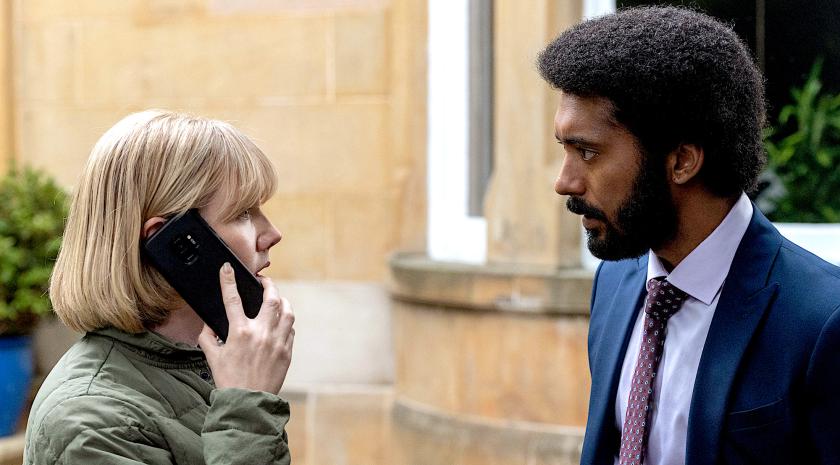Although plaudits have been rolling in for Lauren Lyle’s smart and sparky portrayal of the titular detective in Karen Pirie (ITV), getting to the end of the third and final episode felt like a long slog. The traditional ITV two-hour slot is of course the home of such indestructible classics as Inspector Morse, Poirot, Marple et al, but despite some persuasive performances, Karen Pirie felt over-stretched in its three-week span. It also seemed uncannily like a caledonian makeover of ITV’s cold-case stalwart Unforgotten, as it roved over events from 26 years earlier after Detective Sergeant Pirie was tasked with revisiting a historic murder investigation in St Andrews.
Based on Val McDermid’s novel The Distant Echo, with screenwriting chores handled by Emer Kenny (who also played the role of Pirie’s implausibly-named friend River Wilde), it unravelled the twisty and red-herring-packed story of the 1996 murder of Rosie Duff (Anna Russell-Martin), who’d been working in a St Andrews bar before her stabbed and strangled body was found in a graveyard. Three drunken students found at the scene automatically fell under suspicion, but in the absence of conclusive evidence the police investigation had fizzled out.
The case was reopened after the rather self-righteous Bel Richmond (Rakhee Thakrar) started probing into the entrails of the story in her true-crime podcast, forcing the cops to show some renewed interest. Needless to say, it emerged that the original investigation had been not only incompetent but downright suspicious, with glaringly obvious avenues left unexplored. A key witness statement had not been followed up, and forensic evidence had been overlooked.
 As well as the mechanics of the investigation, the drama found plenty of room to investigate issues like sexism and cronyism in the police force, with the all-male top brass seemingly handing the inexperienced Pirie the job in the expectation that she would fail. The gender divide was briskly highlighted when Pirie’s boyfriend and fellow-officer Phil Parhatka (Zach Wyatt) went into a sulk because she’d got the job heading the new investigation ahead of him. However, he was able to reassure himself (while simultaneously undermining her) that she’d only got it as a sop to gender equality.
As well as the mechanics of the investigation, the drama found plenty of room to investigate issues like sexism and cronyism in the police force, with the all-male top brass seemingly handing the inexperienced Pirie the job in the expectation that she would fail. The gender divide was briskly highlighted when Pirie’s boyfriend and fellow-officer Phil Parhatka (Zach Wyatt) went into a sulk because she’d got the job heading the new investigation ahead of him. However, he was able to reassure himself (while simultaneously undermining her) that she’d only got it as a sop to gender equality.
Since we’re in box-ticking mode, there was not only a gay dimension but also a racist one, in the form of murder suspect Alex Gilbey (Buom Tihngang, pictured left). His liaison with the deceased Rosie had been overshadowed by lurking bigotry, and his quite reasonable assumption that the police would be delighted to pin the murder on him because he was black meant that his vital evidence had been buried for the past quarter-century.
One thing the show did particularly well was to match the present-day characters with their 26-years-younger selves, all of whom had been so skilfully cast that you could easily spot the similarities. When this has been done in other series, viewers can often think that they’ve accidentally pressed the channel button and been transported into a different programme entirely.
However, Karen Pirie couldn’t escape that familiar murder-mystery syndrome in which every character at some point gets fingered as the perpetrator, only for some hitherto unknown angle or piece of evidence (however unlikely) to emerge and push the story off in a completely different direction. The introduction of an unseen avenger with a close connection to the murder victim was an especially irritating interpolation, as if the resolution of the story was more like a throw of the dice than something emerging organically from the unfolding narrative.
And so over to our our judging panel, and they say... not bad, but not exactly unmissable.















Add comment